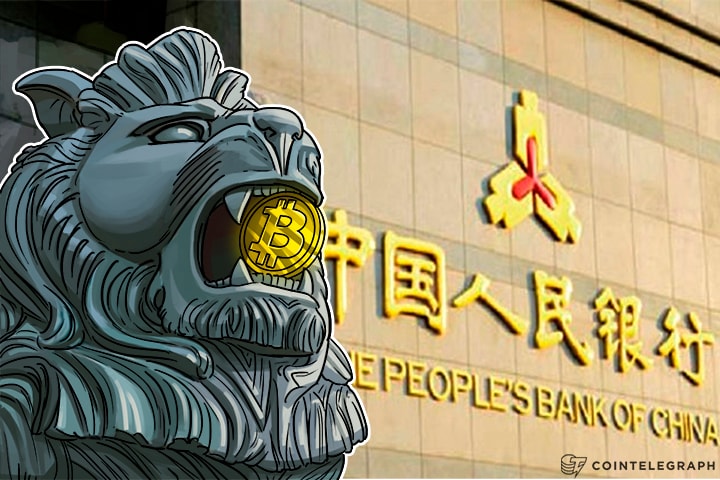China is at the center of Bitcoin as it should be. After all, most of the world’s Bitcoin is mined and traded there. However of late, the Chinese Bitcoin scene has a new persona on the stage and that is the country’s almighty central bank, the People’s Bank of China hereinafter PBOC.
The PBOC has of late issued two statements, one on Jan. 11, 2017 and the other on Jan. 6, 2017 both of which have sent Bitcoin falling from the early January highs the currency had achieved above the $1,000 mark. So what is prompting the PBOC to take an interest in Bitcoin and what is the likely outcome of this interventionist approach?
PBOC has a point
The last fall in Bitcoin did more than just terrify their investors, it actually hurt. In an article in the South China Morning Post, the author Xie Yu cites the case of Ding Wen, a 34-year old man who lost 40 percent of his investment in Bitcoin as he was unable to log into his Huobi account.
Ding Wen was using leveraged betting to invest in Bitcoin. As Xie Yu writes:
“Now speculation, derivative products, leveraged betting and program trading appear to be spreading in the largely unregulated Bitcoin market. Such practices are thought to be responsible for pushing up the price of Bitcoin by more than 260 percent since early 2016.”
That is not all. China Daily also cited a Bitcoin trader Ma Yuanchuan who also lamented:
“Sometimes platforms suspend trading when prices plunge. For investors, this could mean a significant loss if they cannot sell and withdraw immediately.”
Let us be honest here: if the PBOC has found a reason to investigate these exchanges, it is because of the laxity on their part. People not being able to log into their accounts to execute trades is a serious lapse. However, now that they have the opportunity the PBOC can also serve their other purpose.
A Chinese ‘custodian’ of Bitcoin
SCMP quoted The China Securities Journal, which is sponsored by China’s official news agency Xinhua, “Regulators have noticed that some Bitcoin platforms crashed during the recent market volatilities, causing some investors, particularly those trading with leverage tools, to bear huge losses because they were unable to log on to the website during the sell off.”
The newspaper further added that there is a discussion among Chinese regulators and industry insiders about improving trading security by setting up third-party custodian platforms on the Bitcoin market.
Now you can argue all about the ridiculousness of a custodian service or the likely benefits or disadvantages of having one but the very idea that PBOC and Chinese regulators are mulling it over considers the level of control they can exercise over Bitcoin at least within their own borders.
Given that most of the Bitcoin world is presently in China, the impact would be felt far beyond the Chinese frontiers if such action was to be taken by the authorities.
Kill one, terrify a thousand
Sun-Tzu said these famous words and they stand true to this day.
It may not be the Chinese central bank’s intention to destroy Bitcoin or to control it. It may just be to give a gentle reminder to everyone that they can cause it go crashing down.
No, it was not the media reports including any report from us that sent prices down, it was the PBOC. This is an undeniable fact.
Was the famously opaque central bank issuing these press releases for routine inspections as a matter of course? Was there anything sinister intent behind their motivations to cause a decline in Bitcoin? Will this volatility induced by PBOC lead people to feel jittery over Bitcoin?
Remember Bitcoin had been fairly stable for 2016 before these helpful and friendly statements of PBOC. If there is some explaining to do over this, it should not come from the targets of the ‘investigation’ but it should come from the central bank itself. If it was a routine on-site or off-site inspection, they could have gone around it without making any announcement but they chose to do so in this case and that is the question at the center of this all.
China is the Middle Kingdom for Bitcoin
For the foreseeable future, there is no escaping from China if you live in Bitcoin land. No India is not going to be an alternative.
The ground situation in India is simply not conducive as of yet to become a Bitcoin alternative. China and India both have the same issue of capital controls. Indian capital controls are even more restrictive. Add to that the lack of infrastructure and the high temperatures that make mining difficult.
As Kumar Gaurav, Founder & CEO at Cashaa, Auxesis Group says:
“India is certainly not an ideal destination for the mining farms which produce enormous amounts of heat and lack of electricity, but necessity is the mother of invention. Also, Solar power in India is a fast-growing industry, and especially last year initiatives of PM Narendra Modi has fuelled the ambitious Solar projects. Undoubtedly, this will bring down the cost of electricity in India. But more than that current movement around Bitcoin and recently Blockchain are picking up and no surprise if we see some investment in the mining sector. Mining has become a need due to the Bitcoin market dynamic to meet the local Indian demands, no matter what premium it requires.”
So that leaves us with China and if the Bitcoin culture in China has to survive, it is more than likely it will have to play by the rules laid out by PBOC. We are entering an era of centralisation of a decentralized currency. Brace yourselves.


